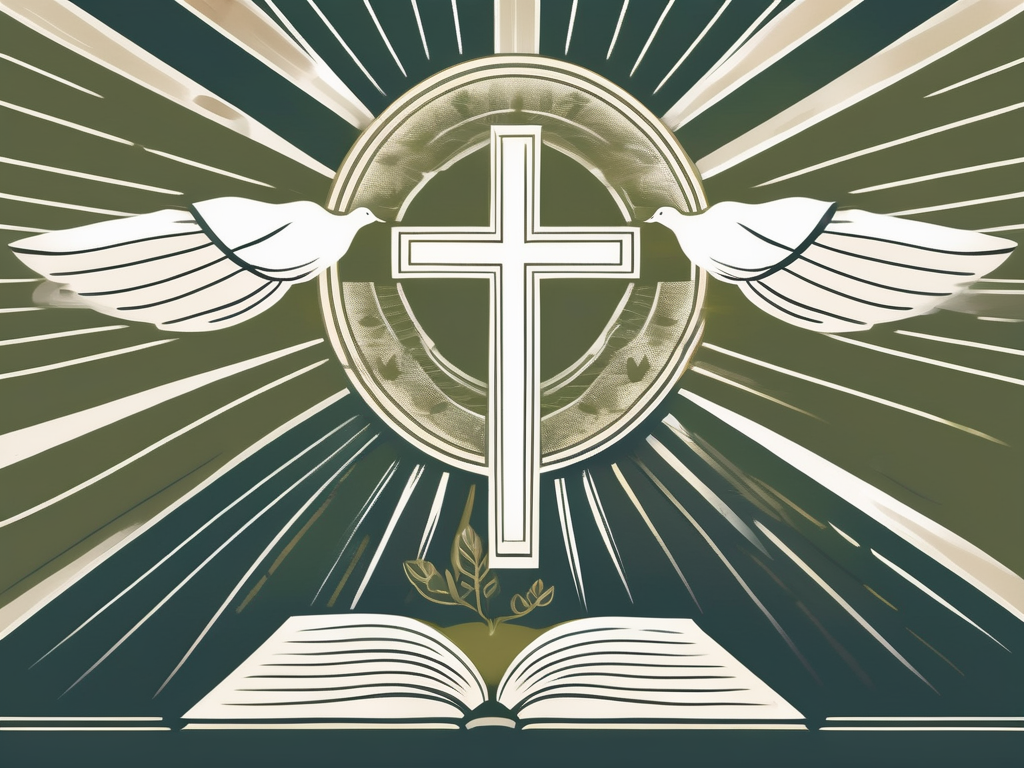The question of whether Jewish is a religion is not a simple one to answer. It is a topic that is steeped in history, culture, and spirituality. To truly understand the term ‘Jewish,’ we must explore its origins and historical context.
Understanding the Term ‘Jewish’
The Origin and Historical Context
When we think of Jewish, we often associate it with both a religion and an ethnicity. The term ‘Jewish’ originated from the Hebrew word “Yehudi,” which means “from the tribe of Judah.” Historically, Judah was one of the twelve tribes of ancient Israel. Over time, the term evolved to encompass not only those from the tribe of Judah but also the entire group of people who identified with Judaism.
Throughout history, Jewish people have faced numerous challenges, including exile, persecution, and discrimination. These experiences have shaped their identity and played a significant role in defining what it means to be Jewish today.
The Jewish people have a rich and complex history that spans thousands of years. From biblical times to the present day, they have contributed to various fields such as art, science, literature, and philosophy. Jewish thinkers and scholars have made significant intellectual and cultural contributions that have shaped the world we live in today.
One of the most well-known periods in Jewish history is the diaspora, which refers to the scattering of Jewish communities outside of the land of Israel. This dispersion began with the Babylonian exile in the 6th century BCE and continued throughout the centuries. Jewish communities were established in different parts of the world, adapting to their new environments while maintaining their religious and cultural traditions.
During the Middle Ages, Jewish communities in Europe faced widespread persecution, often being subjected to discriminatory laws and violence. Despite these challenges, Jewish individuals continued to thrive in various fields, such as finance, medicine, and scholarship. They played crucial roles in the development of trade networks, the advancement of medical knowledge, and the preservation of ancient texts through translation and commentary.
Jewish as an Ethnicity
Beyond the religious aspect, Jewishness can also be seen as an ethnicity. Jewish people share a common heritage, culture, and often a distinct set of customs and traditions. This cultural identity has been passed down through generations, regardless of religious beliefs.
The Jewish diaspora has resulted in diverse Jewish communities around the world, each with its unique customs and practices. From the Ashkenazi Jews of Eastern Europe to the Sephardic Jews of Spain and Portugal, and the Mizrahi Jews of the Middle East and North Africa, each community has its own rich traditions and contributions to Jewish culture.
It is important to note that not all individuals who identify as Jewish practice the religion of Judaism. Some may identify as secular or cultural Jews, still holding onto their Jewish identity, even if not actively practicing religious rituals.
Secular Jewish culture has its own vibrant traditions, including literature, music, and cuisine. Jewish literature, for example, encompasses a wide range of genres and themes, from the biblical texts and Talmudic commentaries to modern works by Jewish authors around the world. Jewish music is also diverse, with various styles and influences reflecting the different regions and historical periods in which Jewish communities have thrived.
Jewish cuisine is another aspect of Jewish culture that has gained recognition and popularity worldwide. From traditional dishes like matzo ball soup and gefilte fish to modern interpretations of Jewish cuisine, the food reflects the diverse history and cultural influences of Jewish communities.
Overall, the term ‘Jewish’ encompasses both a religious and ethnic identity. It represents a rich and diverse tapestry of history, culture, and traditions that have evolved over thousands of years. Understanding the term ‘Jewish’ requires exploring its origins, historical context, and the experiences of Jewish people throughout history.
The Jewish Religion: Judaism
Judaism, the religion associated with Jewish people, is one of the oldest monotheistic religions. Its core beliefs revolve around the worship of one God, ethical living, and following religious commandments outlined in the Torah, the holy book of Judaism.
Observance of religious practices, such as prayer, study, and acts of kindness, is a central aspect of Jewish religious life. The celebration of holidays, such as Passover and Hanukkah, also plays a significant role in connecting Jewish individuals with their faith and history.
Prayer is an integral part of Jewish religious practice. Jews engage in daily prayer, with specific prayers for different times of the day. The prayers are recited in Hebrew, the sacred language of Judaism, and often involve standing, bowing, and covering one’s eyes with their hands. The act of prayer allows individuals to connect with God, express gratitude, seek guidance, and find solace in times of need.
Studying the Torah, the holy scripture of Judaism, is another important aspect of Jewish religious life. Jews engage in regular study sessions, both individually and in groups, to deepen their understanding of the religious teachings and gain insights into the complexities of Jewish law and ethics. The study of Torah is seen as a lifelong pursuit, with scholars dedicating their lives to unraveling its wisdom and applying it to contemporary issues.
Acts of kindness, known as “mitzvot,” are fundamental to Jewish religious practice. Jews are encouraged to perform acts of charity, help those in need, and contribute to the betterment of society. These acts can range from donating money to a charitable organization to volunteering time at a local shelter. By engaging in acts of kindness, Jews strive to embody the values of compassion, justice, and social responsibility that are central to their faith.
Different Sects within Judaism
Within Judaism, there are different sects or denominations, each with its own interpretation of Jewish law and practices. These sects range from Orthodox, which adheres strictly to traditional observances, to Reform, which embraces more progressive interpretations.
The Orthodox sect places a strong emphasis on following Jewish law as it has been traditionally understood and practiced throughout history. They adhere to strict dietary laws, observe the Sabbath with utmost devotion, and maintain gender segregation in religious rituals. Orthodox Jews often engage in intense study of Jewish texts and strive to live their lives in accordance with the teachings of their ancestors.
On the other end of the spectrum, the Reform sect embraces a more liberal approach to Judaism. They believe in adapting religious practices to suit the needs of the modern world and emphasize individual autonomy in interpreting Jewish law. Reform Jews may choose to observe certain traditions while disregarding others, and they often prioritize social justice and equality in their religious practice.
Between these two extremes, there are also Conservative, Reconstructionist, and Renewal sects, each with its own unique blend of traditional and progressive elements. The diversity within Judaism reflects the unique ways in which individuals choose to express their faith and engage with Jewish traditions.
Despite the differences among the various sects, there is a shared sense of belonging and identity among Jewish individuals. The Jewish religion serves as a unifying force, connecting people through shared history, traditions, and values. Whether they are Orthodox, Reform, or somewhere in between, Jews find common ground in their commitment to the principles and teachings of Judaism.
The Intersection of Ethnicity and Religion
The Role of Culture in Jewish Identity
Jewish identity is a complex tapestry woven with both religion and culture. The cultural aspects of being Jewish, such as shared traditions, language, and cuisine, often go hand in hand with religious practices. These cultural elements serve to strengthen the bond among Jewish people and reinforce their collective heritage.
For many Jewish individuals, their Jewish identity encompasses both religious and cultural dimensions, creating a multi-dimensional sense of belonging and community.
Conversion to Judaism
While Jewishness is often passed down through generations, it is also possible to convert to Judaism. Conversion is a deeply personal and significant journey, involving a commitment to embracing Jewish beliefs, practices, and values. Those who convert become an integral part of the Jewish community, embracing their new religious and cultural identity.
The Global Jewish Community
Jewish Diaspora and Identity
The Jewish people have spread across the globe, forming a diverse and vibrant global community known as the Jewish Diaspora. Despite being dispersed in different countries, Jewish individuals maintain a strong sense of unity and connection to their shared history and traditions.
The Jewish Diaspora has contributed immensely to the arts, sciences, and many other fields of human endeavor, enriching the societies in which they reside and leaving a lasting impact on the world.
Modern Judaism and Its Challenges
In modern times, Judaism faces unique challenges as it adapts to an ever-changing world. The rapid pace of globalization, advances in technology, and shifting social dynamics present both opportunities and obstacles to the practice and preservation of Judaism.
Issues such as interfaith relationships, assimilation, and the impact of secularism on religious observance are just a few of the complex challenges that Jewish individuals and communities navigate in today’s society.
Conclusion: Is Jewish a Religion?
The question we asked at the beginning, “Is Jewish a religion?” cannot be simply answered with a yes or no. Jewish encompasses both a religion and an ethnicity, with a rich history and a profound sense of culture and spirituality.
Jewishness is a multi-faceted identity that extends beyond religious beliefs, embracing a shared heritage and values. Whether one practices Judaism or identifies as a secular or cultural Jew, the bond of Jewish identity remains strong.
In the end, how one understands and defines Jewish is a deeply personal journey, shaped by one’s experiences, beliefs, and connection to the broader Jewish community.












